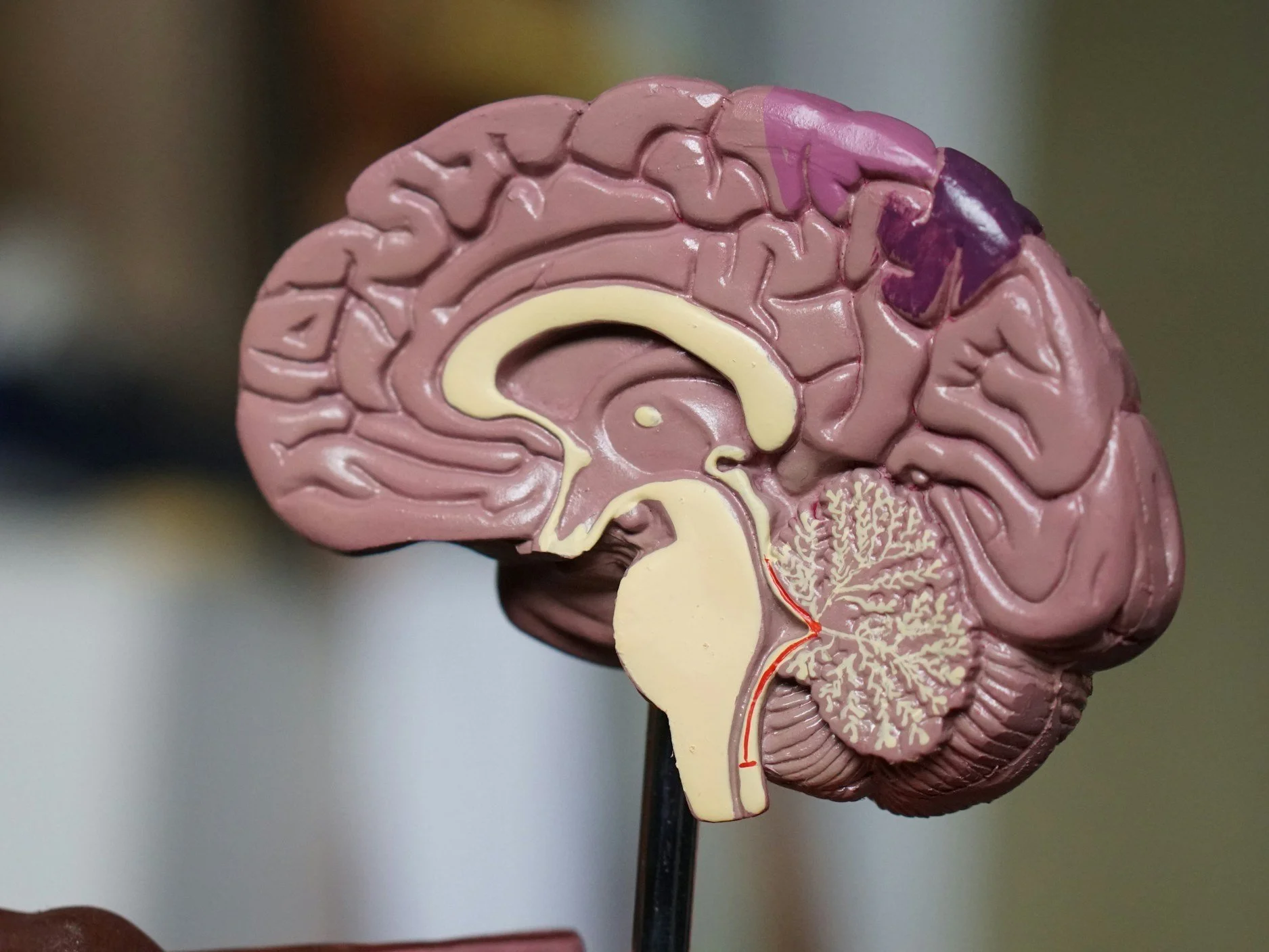Alzheimer's, Brain Health & Menopause: What Every Woman Needs to Know
June is Alzheimer’s and Brain Awareness Month—a time to spotlight one of the most important (and often overlooked) parts of our health: our brains.
As women, we’re often taught to focus on everything but our cognitive well-being. We prioritize family, work, and everything in between, but when was the last time you thought about your brain as a part of your long-term health strategy?
Here’s why that needs to change—especially if you’re navigating perimenopause or menopause.
Two out of three Alzheimer’s patients are women
Women, Brain Health, and Alzheimer’s: The Connection You Can’t Ignore
Alzheimer’s disease is not just a condition that affects older people. It’s a progressive brain disorder—and two out of three Alzheimer’s patients are women.
That statistic isn’t just about age. It’s about hormones.
The drop in estrogen during menopause isn’t just a hot flash trigger. It plays a direct role in the health of your brain. Estrogen helps regulate energy production, blood flow, and inflammation in the brain. When levels decline, your brain becomes more vulnerable to memory lapses, brain fog, and long-term cognitive changes.
Translation? Menopause is a neurological event, not just a reproductive one.
Brain Fog vs. Early Warning Signs: Know the Difference
It’s normal to forget where you put your keys once in a while or to walk into a room and wonder why you're there. But when memory issues start to affect your day-to-day functioning, it’s time to pay attention.
Here’s the key: brain fog is common in menopause—but it doesn’t have to be permanent. With the right support, your brain can stay strong, sharp, and healthy.
3 Ways to Keep Your Brain Healthy During and After Menopause
1. Mental Stimulation
Your brain loves a challenge. Read books, do puzzles, learn a new skill, or take up something creative like painting or music. Even short bursts of brain activity can create new neural connections.
2. Movement Matters
Exercise isn’t just for your body—it boosts brain-derived neurotrophic factor (BDNF), a growth factor that supports brain plasticity and memory. Aim for 20–30 minutes of movement most days of the week.
3. Fuel with Purpose
What you eat directly impacts your brain. Focus on omega-3s, leafy greens, healthy fats, and antioxidants. Think Mediterranean-style meals that support both your body and your brain.
Let’s Talk About Hormone Replacement Therapy (HRT)
One of the most powerful, research-backed tools for women’s brain health? Hormone Replacement Therapy.
Here’s what we know: Starting HRT early in the menopause transition (typically before age 60 or within 10 years of your final period) may help reduce your risk of developing Alzheimer’s disease.
Estrogen supports the brain’s energy systems and protects against oxidative stress. When we lose estrogen abruptly—as in menopause—that protection weakens. HRT helps fill the gap, offering support not just for hot flashes or night sweats, but for long-term brain health.
Of course, HRT isn’t one-size-fits-all. It’s about finding the right type, dose, and timing for you—and working with a provider who understands the full picture.
Bottom Line: You Can Take Control
Alzheimer’s isn’t just about fate or genetics. It’s about risk. And risk can be managed—especially when you know what to look for and what to do.
Your brain matters. Your memory, your mental sharpness, your ability to stay connected to who you are—it all matters.
So this June, I’m inviting you to take one small step. Whether that’s researching HRT, adding brain-friendly foods to your plate, or simply doing a crossword puzzle tonight—start somewhere.
Because when we take control of our health, we protect more than our bodies.
We protect our minds. Our future. Our independence.
Defy Menopause - Own the Change
Many women tell me: "One day I feel amazing. The next, I can barely get out of bed. Is this normal?"
Yes, it is. And no, you don’t have to suffer through it alone.
Hormonal fluctuations during perimenopause can make you feel like you’ve lost control of your body. But knowledge is powerful. And there are clear, science-backed ways to support your hormones, ease symptoms, and reclaim your energy.
That’s exactly why I created Defy Menopause: Own the Change — a 30-day program designed to give you the tools, knowledge, and support you need to move through these changes with clarity and confidence.
Inside, you’ll find:
Weekly access to Dr. Tracy Verrico at live, group sessions
Clear action steps for managing symptoms naturally
Because you deserve more than just "putting up with it."
You deserve to thrive.
Let’s Connect
Schedule an Appointment | LinkedIn | YouTube | Instagram | Bona Dea Gynecology

